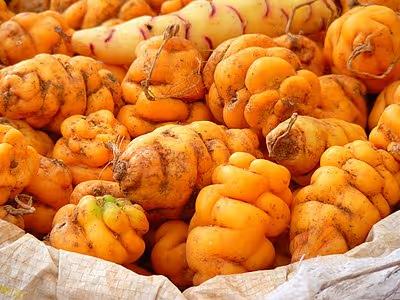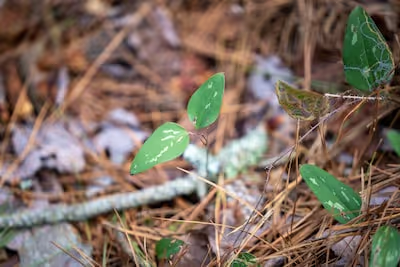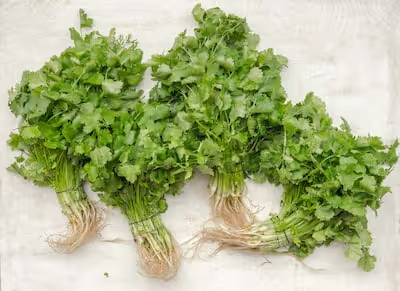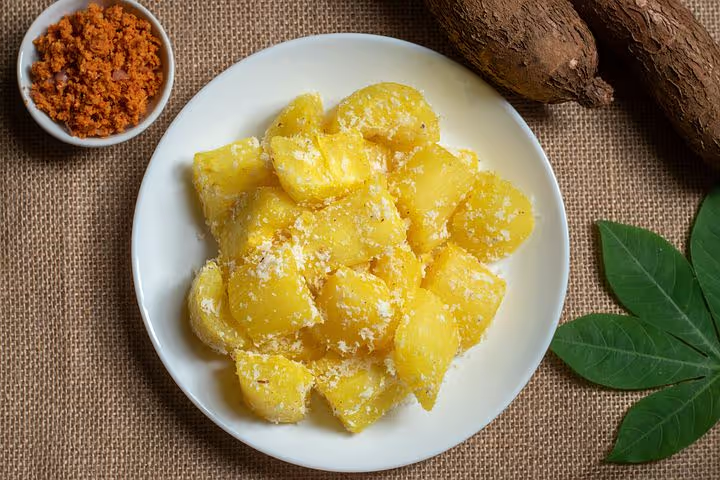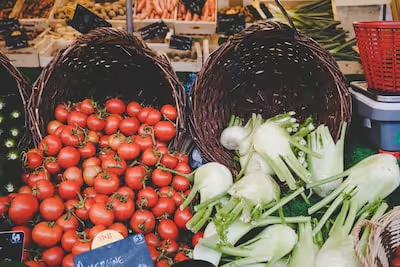Growing Clover at Home: Simple Beauty, Easy Maintenance
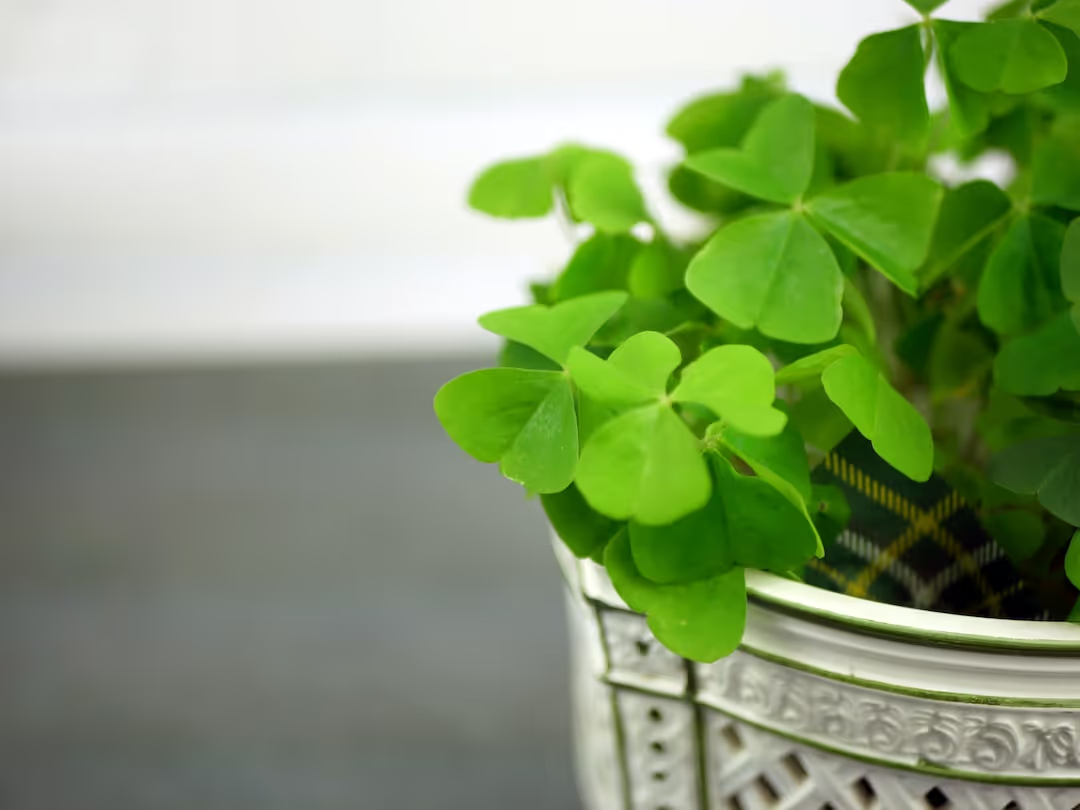
Growing Clover
Growing clover brightens tired soil, attracts pollinators, and needs minimal fuss to thrive. Sprinkle seeds into moist soil, gently rake, and watch your greenery sprout within days. Perfect for patchy lawns or container gardens, growing clover rewards you with lushness and color—read on to keep it thriving without breaking a sweat.
Cheatsheet: Quick-Start Guide for Clover Lawns & Patches
🌱 Varieties to Grow
- White clover (Trifolium repens): dense, low, soft
- Microclover: tiny leaves, blends into turf
- Red clover (Trifolium pratense): taller, pollinator magnet
☀️ Where & When to Plant
- Site: full sun to partial shade
- Soil: well-drained, pH 6.0–7.0
- Seed in spring or fall (55–70°F / 13–21°C soil temp)
🛠 Tools and Products You'll Need
- Rake or hoe
- Hand broadcaster or spreader
- Clover seed (0.5–1 lb / 225–450g per 1,000 sq ft / 93m²)
- Watering can or hose
🚦 Planting Steps
- Rake area clear of debris and loosen top inch (2.5cm) of soil
- Broadcast seed evenly
- Lightly rake to cover seed
- Water gently until soil is moist (not soggy)
- Water daily until sprouts appear (5–10 days); then reduce
💧 Ongoing Care
- Mow to 3–4" (7.5–10cm) if desired
- Water only during dry spells—drought-tolerant
- Rarely needs fertilizer; fixes own nitrogen
- Pull or spot-treat broadleaf weeds
🌸 Benefits & Intriguing Stats
- Cuts lawn watering by 40–50%
- Stays green through moderate drought
- No pollen allergy risk—bee-friendly
- Enriches soil, boosts yields in veggie beds
- Edible leaves—vitamin-rich for salads, teas
-
Growing Clover at Home: simple beauty, easy maintenance
I like plants that earn their keep and pay the bar tab, and Growing Clover does exactly that. It feeds the soil, calms the lawn, and asks for very little in return.
Pick your clover like you pick a good knife
- Dutch white clover Trifolium repens. Low habit 4 to 8 inches 10 to 20 cm, tough, self-spreading by stolons, forgiving under feet, flowers lightly under frequent mowing.
- Microclover named cultivars like Pipolina or Pirouette. Smaller leaves, fewer flowers under mowing, blends cleanly with turf, costs more but looks razor neat.
- Ladino white clover. Big-leaf type for pasture, gorgeous but tall, best in meadows or orchard alleys rather than a tight lawn.
- Red clover Trifolium pratense. Short-lived perennial or biennial, upright, lovely in borders and veggie beds as a living mulch, less ideal for a tight footpath.
- Alsike clover Trifolium hybridum. Handles heavier, moist soils, fine for open areas, moderate bloom, keep it out of soggy low spots.
Soil, light, and the quiet chemistry that makes clover sing
Full sun to light shade works, and 4 to 6 hours of sun keeps it dense. Aim for a soil pH of 6.0 to 7.5, decent drainage, and skip high-nitrogen fertilizer so the symbiosis does the heavy lifting.
If your site never saw clover, use a Rhizobium inoculant for white clover Rhizobium leguminosarum biovar trifolii. That sticky black powder on coated seed is the tiny workforce that fixes nitrogen.
Fact: White clover can fix about 50 to 150 pounds of nitrogen per acre per year 56 to 168 kg ha when well nodulated. Source: USDA NRCS Plant Guide for Trifolium repens.
Timing and prep that actually moves the needle
Seed in spring when soil hits 50 to 65 F 10 to 18 C, or late summer to early fall with 6 to 8 frost-free weeks left. I scalp existing turf to 1 to 1.5 inches 2.5 to 4 cm, rake out thatch, and open the canopy so seed sees soil.
Pause pre-emergent herbicides for at least 8 to 12 weeks, and avoid broadleaf killers entirely. Clover is a broadleaf, so that spray for dandelions will smoke it too.
Seeding rates that work, and how to place every seed once
- Overseeding into lawns: white clover 1 to 2 ounces per 1000 sq ft 3 to 6 g m², microclover 0.1 to 0.25 lb per 1000 sq ft 5 to 12 g m² depending on blend.
- Monoculture clover lawn: 2 to 4 ounces per 1000 sq ft 6 to 12 g m² for white clover.
- Beds, paths, and cracks: sprinkle lightly and press in, then top-dress with a whisper of compost.
Broadcast evenly, then press the seed into the surface with a roller or your boots. Ideal depth is on the surface to 1/8 inch 3 mm, because clover is small-seeded and hates burial.
Keep the top inch of soil moist with light, frequent waterings for 10 to 14 days. After the first mow, shift to deeper, less frequent irrigation, about 1 inch 25 mm per week in dry spells.
Mowing and feeding, the low-effort routine
- Mowing height: pure clover lawn 2 to 3 inches 5 to 7.5 cm. In mixed turf, 2.5 to 3 inches 6 to 7.5 cm keeps both parties happy.
- Flower control: mow before bloom if you want fewer bees under bare feet, especially around play zones.
- Fertilizer: skip synthetic nitrogen. If a soil test calls for phosphorus or potassium, apply sparingly and water in.
- Top-up seeding: touch up high-traffic patches each spring. A handful goes a long way.
Water thrift, bees, and the social contract of a lawn
Once established, clover rides out heat better than thirsty cool-season grasses. In my front patch at 95 F 35 C, clover stayed green while the bluegrass sulked.
Clover feeds pollinators hard, which I love, but I mow paths before bloom near the barbecue and kid zones to keep stings rare. Microclover blooms less under routine mowing, so it’s easier to manage in barefoot spaces.
Top reasons I seed clover into turf, ranked by what I notice most
- Free nitrogen that boosts the lawn color without a bag of urea, and it leaks into the grass over time.
- Soft texture that feels good on bare feet, cool even on hot days.
- Dog spot tolerance so I do not wake up to polka-dot burn patches in August.
- Reduced mowing waste because clover tops stay short under frequent cuts.
- Drought resilience that holds green longer between irrigations.
- Early season color since clover wakes up fast in spring.
- Pollinator support that makes the yard hum in the best way.
Weeds and chemistry: what plays well, what does not
Skip 2,4-D, dicamba, and similar broadleaf herbicides if you want clover alive. Hand-rogue dandelions for a season or two, or spot-sponge with care on windless evenings.
Pre-emergent crabgrass products can block clover seed too, so time them away from your seeding window. If you must, seed first, then apply a light pre-emergent after clover has matured and filled in.
Common hiccups and my quick fixes
- Thin shade stands: increase light if you can, overseed lightly in spring and fall, and raise mowing height to 3 inches 7.5 cm.
- Soggy soils: add surface drainage or aerate. Clover resents wet feet and root rots will follow.
- Rabbits: they snack. I plant a decoy strip of red clover at the lot edge and keep the core lawn cut tighter.
- Heavy traffic: use stepping stones or a reinforced path. Overseed the flanks each spring.
- Herbicide drift: keep the sprayer holstered upwind, and warn the lawn service. One pass can erase a year of growth.
Shopping guide, no fluff
- Seed form: look for coated, pre-inoculated white clover or microclover. Coatings add weight, so mind the rate.
- Cultivar names: Dutch white and mini-leaf types like Pipolina have predictable habit and color in turf.
- Where to buy: independent garden centers, farm co-ops, and reputable seed houses with tested germination. Ask for a recent test date.
- Price ballpark: Dutch white 6 to 12 USD per lb, microclover 25 to 40 USD per lb. You use very little per 1000 sq ft, so the project stays affordable.
Field note: Seed placement matters more than seed count. Clover wants firm soil contact and light, steady moisture the first two weeks. Source: university extension turf seeding bulletins and my own trials.
Ornamental and edible edges I plant for fun
I stitch microclover between stepping stones and under espaliered apples as a living mulch. It cools the soil, blocks splash, and the white dots of bloom look like constellations at ankle height.
In veggie beds, I sow red clover in paths and mow it low to feed the worms. Keep it 8 to 10 inches 20 to 25 cm from crop stems to reduce competition, then scythe it for mulch right on site.
FAQ, quick and honest
- Will clover take over? It spreads by short stolons, slow and steady. Edge once a month in the growing season and it minds its manners.
- Is it perennial? White clover is a perennial in USDA zones 3 to 10, and it self-renews by reseeding and creeping.
- How fast does it germinate? Usually 7 to 14 days with warmth and moisture.
- How low can I mow? I keep pure clover at 2 to 3 inches 5 to 7.5 cm, and mixed turf around 3 inches 7.5 cm.
- Core aeration timing? Aerate, then seed the same day. Those holes are perfect seed cradles.
- Kids and pets? The plant itself is fine around both. Manage bloom near play areas to limit bee encounters.
Anecdote from a hot sidewalk
On a July afternoon the concrete cooked my shoes and the clover under the hose bib still felt cool to the touch. Plants that give that kind of relief earn a permanent place in my yards, and I keep a bag of seed ready for the next bare patch.
Frequently Asked Questions About Growing Clover
What type of clover suits home gardeners best?
For effortless gardening, white clover (Trifolium repens) makes an excellent companion. It quietly thrives in diverse conditions and demands minimal fuss, rewarding growers with luscious foliage and subtle blooms.
How much sunlight does clover need to thrive?
Clover savors full sunlight but graciously tolerates partial shade. At least four to six hours of sun exposure daily keeps your clover satisfied and flourishing, though more generous sunlight invites thicker growth.
What's the optimal soil condition for healthy clover?
Clover flourishes in soil that's well-drained and moderately fertile. Slightly acidic to neutral soils, with a pH between 6.0 and 7.0, allow healthy root growth and vibrant foliage color. If soil conditions meander off-course, amend gently with organic compost.
Does clover require regular watering?
Established clover stands resilient against drought, but new plants appreciate consistently moist soils until firmly rooted. Water thoughtfully, letting the soil's dryness guide your schedule—avoid soggy conditions, as clover prefers its roots comfortably moist, not drenched.
Does clover help improve garden soil quality?
Absolutely. Clover possesses the skill of fixing atmospheric nitrogen, naturally enriching your garden beds and nourishing neighboring plants. This subtle magician quietly enhances your soil ecosystem, reducing the need for additional fertilizers and attracting beneficial pollinators.
How often does clover need pruning or mowing?
Clover tolerates being left alone graciously, but occasional mowing or trimming invigorates growth. Aim to lightly mow or prune once every month or two, encouraging lush, dense foliage and keeping your garden looking refined and intentional.
Are pests and diseases significant concerns with clover?
Clover generally withstands pest and disease stress superbly. Rare guests like aphids or powdery mildew occasionally appear but usually respond kindly to simple natural remedies like neem oil spray or mild insecticidal soaps.
Growing Clover strips away the fussy, high-maintenance playbook. You get lush, low-growing greenery that feeds pollinators, builds soil, and shrugs off drought like it’s nothing. With minimal watering, little mowing, and no chemical obsession, you’re trading headaches for easy, sustainable beauty. Let its roots fix nitrogen, letting your soil breathe and your garden thrive. Want more edible, resilient plants in your yard? Explore growing buckwheat alongside your clover for a punch of diversity. In the end, clover gives back more than it takes, quietly changing the way you see your own patch of earth.
The Homesteader's Take: Clover for Self-Sufficient Living
Livestock Friendly Grazing
Clover provides nutrient-rich forage, supplying livestock with protein and improving milk production—22% protein content compared to average grass at just 8–12%.
Natural Honey Production
Clover blossoms attract pollinators such as bees, supporting healthy hives and yielding flavorful, mild clover honey with antimicrobial properties.
Edible Benefits
- Leaves & Flowers: Eaten raw or cooked, high in vitamin C, calcium, and potassium.
- Dried Tea: Dried red clover blossoms steeped for tea provide antioxidants, traditionally consumed for respiratory wellness.
Cover Crop Advantages
- Nitrogen Fixation: Clover absorbs atmospheric nitrogen, replenishing soil nutrients and reducing synthetic fertilizer usage by up to 50%.
- Weed Suppression: Clover's dense, low-growing habit limits weed growth, minimizing maintenance.
Composting & Soil Building
Add harvested clover to compost piles for enriched organic matter, improving soil structure and increasing beneficial microbial populations.
Pest Management Aid
Clover attracts beneficial insects like ladybugs and predatory wasps, naturally reducing harmful insect populations in surrounding gardens.
Emergency Fodder Resource
Fast-growing clover fields offer emergency animal fodder during shortages, harvested every 35–45 days throughout the growing season.
Find out which plants will thrive in your garden!
Answer a few fun questions and get custom plant recommendations perfect for your space. Let’s grow something amazing together!

start your season
